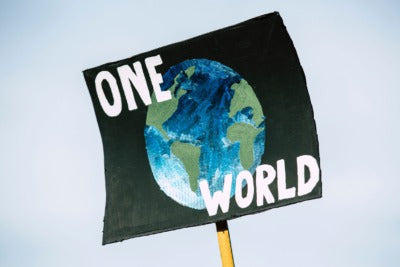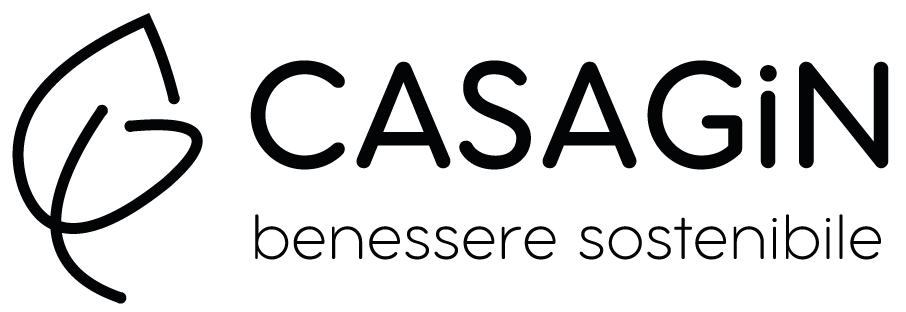
Self-sufficiency, freedom and the future: what world do we live in?
“The supreme fruit of self-sufficiency is freedom” – Epicurus
The topic of economic self-sufficiency has engaged the reflection of illustrious thinkers since ancient times and the words are, more often than not, important lessons to keep in mind, to live life with pride and honor. Very important topics that run the risk of being treated in a banal way or, in many cases, completely misunderstood. The advent of the industrial era in fact led, first the West and then the rest of the world, to believe that the interdependence of states with other nations and empires was a source of authority and wealth. After World War II, however, opinions changed. Self-sufficiency is beginning to be seen as the core of national power and security. Then, in the 1980s, this mantra changed again, accentuating the economic benefits of globalization. Since then, each nation's economy has depended on the rest of the world.
But following increasingly emphasized inequalities , the financial collapse of 2008, the closure of entire countries to fight the Covid-19 epidemic and the prospect of realities such as China and the United States, which increasingly act at a national level, the question self-sufficiency could become a central theme in the coming years. A necessity, rather than an option, which however does not consider the growth-based model, typical of industrial capitalism, as harmful to the environment and ecology. A growth that now represents the main driving force behind the production of superfluous goods: ephemeral riches that have led modern man to pursue material rather than spiritual growth, less linked to improvement and fulfillment, from a psychological, professional and human point of view. As life teaches us, running for the pleasure of feeling alive is more important than reaching the goal; but this concept has been abandoned in favor of a more competitive logic linked to possession rather than experience.
In this sense, self-sufficiency becomes an essential condition for a sustainable approach to consumption and life more generally . Sustainability understood as a condition of fair and shared development, capable of meeting the needs and aspirations of every human being, today and in the future. This is because at present the demand for natural resources has exceeded supply and a small part of the world population consumes much more than the rest and too quickly, without giving nature time to regenerate what has been consumed. A situation that will soon lead to the collapse of the entire system with possible catastrophic implications from an environmental and social point of view. This is why one of the few considerable solutions is to abandon the production of superfluous goods and the ideology of mass consumerism. If we really want to save the planet, the economic model of growth based on industry and globalization must be considered obsolete. Evolution is also this: the development of human beings from lower forms to more perfect forms, without leaving anyone behind.
Each evolutionary path has a different trajectory but a shared ultimate goal : the increase in autonomy and self-sufficiency, the reduction of the forced need that forces us to survive rather than live. And self-sufficiency is a term linked to autarky, too often understood negatively due to those who, in more or less remote times, took advantage of this term for personal purposes, altering its true meaning, coined in ancient Greece as a synonym of self-sufficiency of the wise man with respect to external goods; but also a term that refers to independence and depends on sustainability. The latter is an interesting subject for years and increasingly popular today; to the point of being manipulated by everything and everyone, who are once again turning the problem on their side, reversing responsibilities, in order to save their profits, not the planet, in order to perpetuate the model of capitalism industrial based on growth, not ecology. And there is a term for this too: green washing (giving oneself a veneer of environmental credibility). On the other hand, how can companies and countries define themselves as sustainable when they continue to exchange the same products in large quantities, polluting and exploiting workers' rights, when they could instead send them to the internal market? Why buy Moroccan oranges or Chinese clothes, when Italy could directly manage their production? Why not insist on internal production capable of satisfying internal needs, allocating for import only those products that cannot be obtained locally? Why not think of a world that is functional both for the well-being of everyone and for the protection of the planet?

How to orient yourself in this jungle, then? It is necessary to begin a transition towards an economy of evolutionary de-growth and self-sufficiency, where everyone eats and consumes what they really need. Today it is impossible to provide a lifestyle, like the current one in rich countries, to 7 billion inhabitants and it will be increasingly impossible when there are 9 and then 10 billion of us. If humanity were to continue its current trends of consumption of natural resources and systems, by 2050 it will need the equivalent of 2.9 planets (this is stated in the 2012 WWF Living Planet Report). For this reason, as the WWF website itself mentions, the challenge of the new millennium should be "living well within the ecological limits of a single planet" .


